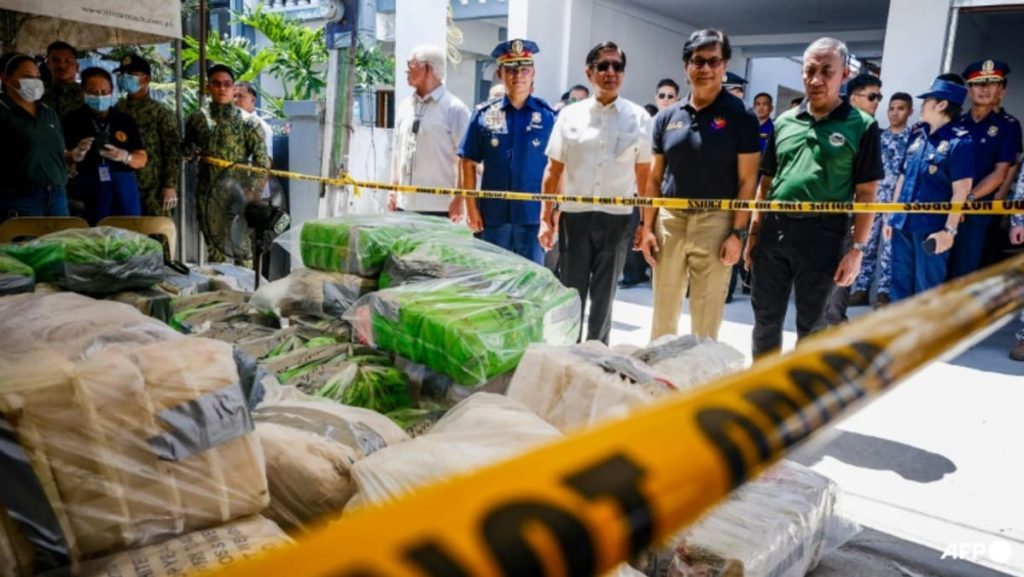The Philippines made a significant drug bust, seizing 1.8 tonnes of crystal methamphetamine worth over $230 million. President Ferdinand Marcos lauded the operation as the “right approach” to the country’s drug war. The illegal drugs were discovered in a van in Batangas province, and the driver was taken into custody. Marcos described it as the largest shipment of shabu, the local name for crystal meth, ever intercepted in the Philippines. Despite the massive haul, there were no casualties or injuries during the operation, which Marcos highlighted as a successful and careful approach to tackling the drug problem.
The President personally inspected the seized drugs and commended the law enforcement agencies involved for their work. The exact quantity and value of the drugs were not specified, but it was clear that this bust was significant in terms of the amount of crystal methamphetamine taken off the streets. In a country where drug-related violence has been rampant, Marcos emphasized the importance of conducting such operations without causing harm to anyone involved. This stood in contrast to the violent anti-drug campaigns carried out under the previous administration, which resulted in thousands of deaths and raised concerns about human rights violations.
Authorities were now focusing on tracing the origins of the seized drugs and investigating the international connections behind the smuggling operation. Marcos stated that the drugs were not produced locally, suggesting that they were part of a larger trafficking network that extends beyond Philippine borders. The successful interception of such a large quantity of crystal methamphetamine underscored the ongoing challenges faced by law enforcement in combating the drug trade. It also highlighted the importance of cooperation with international partners to address transnational drug smuggling networks that operate across multiple countries.
The seizure of 1.8 tonnes of shabu was a significant blow to drug traffickers operating in the Philippines, but it also raised questions about the scale and scope of the country’s drug problem. The record-breaking bust highlighted the continued existence of powerful drug syndicates that are able to move large quantities of illegal narcotics with impunity. President Marcos stressed the need for a coordinated and strategic approach to tackling the drug trade, one that prioritizes the safety of both law enforcement personnel and civilians. By emphasizing the importance of careful and methodical operations, Marcos signaled a shift away from the brutal tactics employed in the past, signaling a new direction in the country’s fight against drugs.
In light of the drug bust, the Philippine government faced the challenge of dismantling the drug trafficking networks responsible for the influx of crystal methamphetamine into the country. Authorities would need to work closely with international partners to gather intelligence and disrupt the operations of these transnational criminal organizations. The seizure was a significant victory in the ongoing battle against drugs in the Philippines, but it also served as a reminder of the persistent threat posed by drug traffickers. President Marcos’ emphasis on a more cautious and humane approach to the drug war signaled a departure from the brutal crackdowns of the past, offering hope that a more effective and sustainable strategy could be implemented to address the root causes of drug abuse and addiction in the country.


